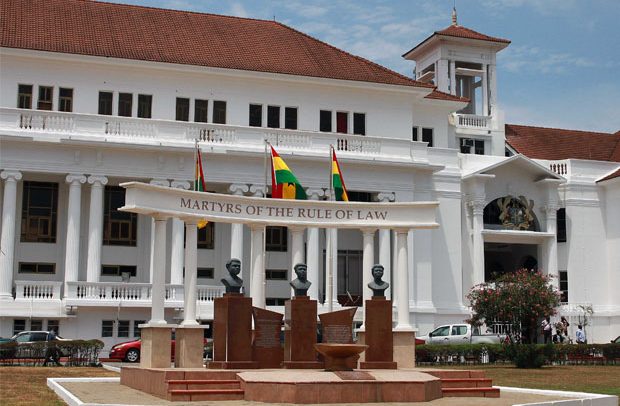The Supreme Court yesterday dismissed a suit challenging the accreditation of the Ghana School of Law as the sole institution to provide professional law courses in the country.
The suit filed by Professor Stephen Asare known on social media as Kwaku Azar was essentially challenging the monopoly of the Ghana School as the only school accredited to train lawyers in Ghana.
In his suit, the plaintiff had argued that the phenomenon was not proper and was seeking the Supreme Court to declare it as unconstitutional.
It was his contention that all LLB candidates from the 11 approved faculties that qualified but are not admitted to the Ghana School of Law have nowhere in the country to go to pursue the professional course which would ultimately qualify them as lawyers.
“In the past few years, the failure rate of candidates taking the QCE after completing their professional course at the Ghana School of Law has been consistently high, evidencing that the school is unable to effectively train students or lacks the incentive to properly train candidates because of its monopoly position,” Prof. Asare argued.
Besides, he contended that “because of the school monopoly position, failed students, whether at the entrance examination or QCE, cannot turn to other schools. They must either keep trying to enter or to exit the school. It is a classic case of a monopolist who has trapped its customers. Neither the school nor the regulator has an incentive to improve the passing rates under these circumstances. Rather, they have an incentive to increase the fees. In economics parlance, the students have become cash cows.”
Among the declaration he was seeking are: “A declaration that the current monopoly enjoyed by the Ghana School of Law in the provision of the professional and post-law courses that prepare candidates for the qualifying certificate of examination violates Article 25(2).
“Declaration that pursuant to Article 25(2) of the Constitution accredited public and private universities have the right, at their own expense, to establish and maintain law faculties to offer the professional law course that prepares students for the qualifying certificate of examination.”
He was also seeking “a declaration that the distinction between the professional law course, run by the Ghana School of Law, and the Academic Law Course, run by approved universities, is arbitrary and capricious and done only to further the monopoly power of the Ghana School of Law in violation of Article 296(b).”
Prof. Asare was, therefore, seeking “an order directing the General Legal Council to provide regulations that allow approved law faculties and other private institutions to provide the professional course, or otherwise integrate this course in their curriculum, the completion of which entitles students to take the qualifying certificate examination or examinations, pursuant to Section 13(e) of Act 32.
“An order of interlocutory injunction to restrain the defendants whether by themselves, their agents, assigns, privies, servants and whomsoever of whatever description from causing the School of Law to be opened for new students, pending the final determination of the substantive suit.”
But in a unanimous decision, a seven-member panel presided over by Justice Sule Gbadegbe, and assisted by Justices Yaw Appau, Samuel Marful-Sau, Agnes Dordzie, Nene Amegatcher, Prof. Nii Ashie Kotey, and Mariama Owusu dismissed the suit as not properly invoking the jurisdiction of the court.
The court said the full reasons for the dismissal would be filed at its registry.
By Gibril Abdul Razak


